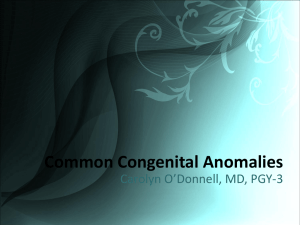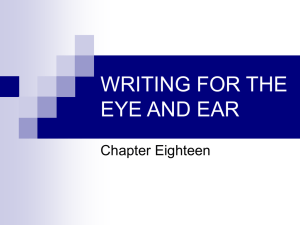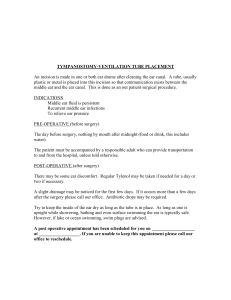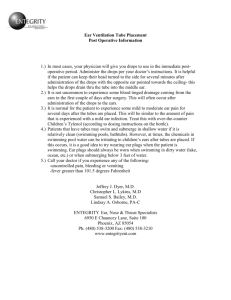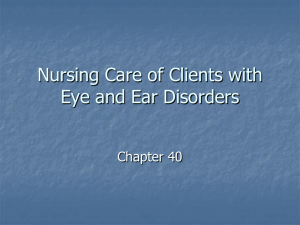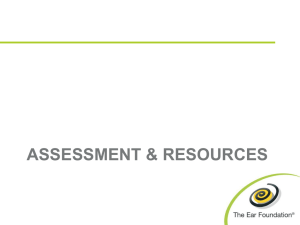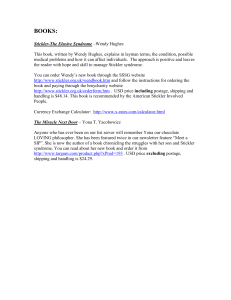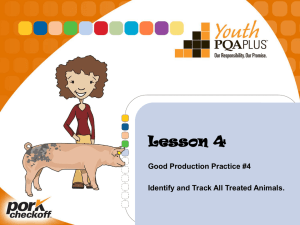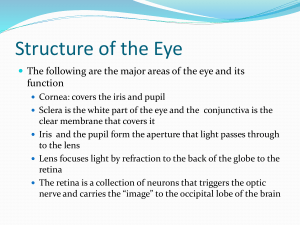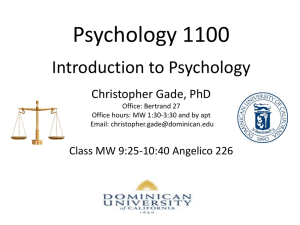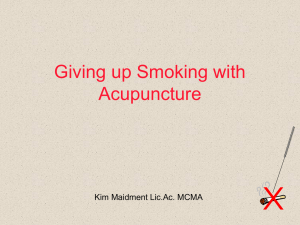Stickler Syndrome
advertisement
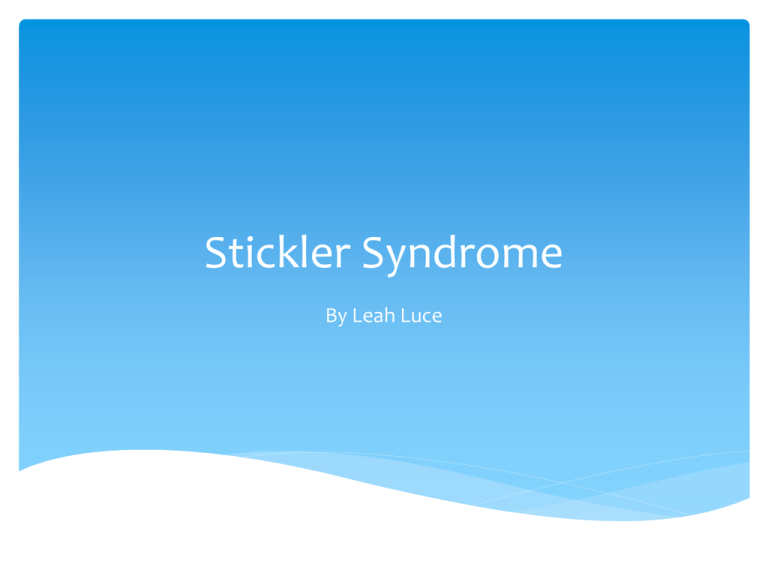
Stickler Syndrome By Leah Luce History Introduced to the medical community in 1965 Originally described by pediatrician Gunnar B. Strickler as hereditary progressive arthroophthalmopathy Affects the body’s collagen Symptoms Nearsightedness Cataracts (clouding of the eye lens) Astigmatism (cornea or lens not spherical) Crossed eyes Glaucoma (elevated eye pressure) Inner ear hearing loss Frequent ear infections Joint pain/enlarged joints Osteoarthritis Loose joints that are abnormally flexible Scoliosis Palate abnormalities Symptoms Cont. Hip degeneration Flat cheeks and nasal bridge Small jaw Split uvula Orthodontic Issues Pierre-Robin sequence (small jaw, cleft palate, tongue placement abnormalities and breathing and feeding problems) Inheritance Caused by mutations in specific genes Types I, II, and III (COL2A1, COL11A1 and COL11A2) are inherited in an autosomal dominant pattern In some cases an affected person inherits a gene mutation from one affected parent Some cases result from new mutations Inheritance Cont. Types IV and V (COL9A2 or COL9A1) are inherited in an autosomal recessive pattern (both copies of the gene in each cell have mutations) Frequency 1 in 7,500 to 9,000 newborns Effected Groups Both sexes are effected Usually detected in infants or in early childhood Age of Onset Can be detected at birth depending on the symptoms Many times it isn’t detected until after the age of 4 In most cases it isn’t discovered until early adulthood or never discovered at all Prognosis There is no cure for Stickler Syndrome The prognosis is moderate Difficult breathing or feeding: affects prognosis considerably and needs special care Blindness: glaucoma left untreated or in case of detachment of the retina isn’t repaired, the child could become blind Ear defects: infections of the ear are common complications Heart ailments: risks of developing heart valve defects Dental problems Treatments Non steroidal anti inflammatory drugs Glaucoma drugs Corrective lenses Hearing aids Speech therapy Special education Physical therapy Tracheostomy Jaw surgery Repair of the cleft palate Surgery for ear tubes Eye surgery Joint replacement Educational help Recent Progress New therapeutics Creation of molecular diagnostic tests Improvements in knowledge of the development and physiology of the ear Improvements in genetic counseling Works Cited http://ghr.nlm.nih.gov/condition/stickler-syndrome http://www.ncbi.nlm.nih.gov/books/NBK1302/ http://www.dbproject.mn.org/sticklersyndrome.html http://www.stickler.org.uk/info.htm
